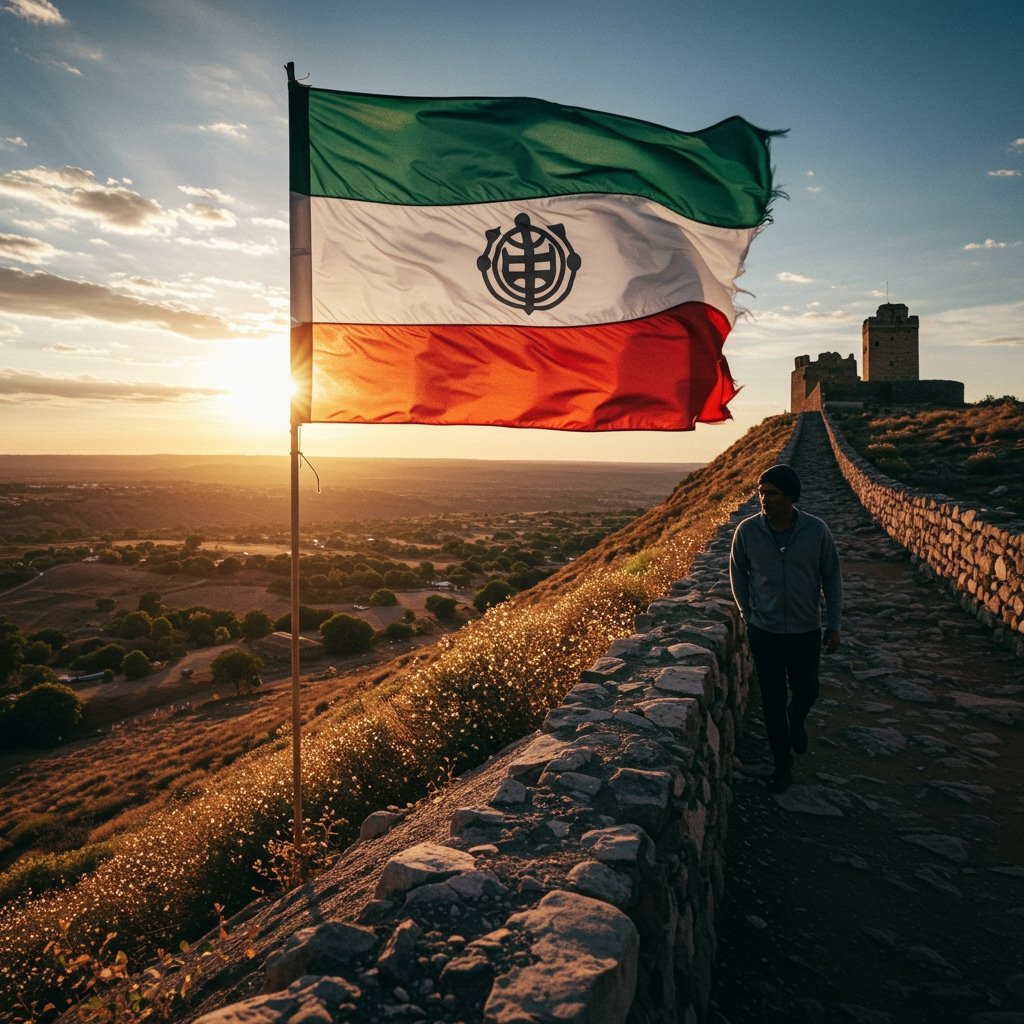June 19th, 2025 — Tensions between Iran and Israel have reached a critical inflection point, marked by a significant escalation in direct hostilities. The exchange of air attacks between the two nations intensified on Thursday, compounding a week of intense military action that has reshaped the security landscape across the Middle East. Simultaneously, diplomatic efforts brokered by the United States have yielded a promising, albeit initial, peace agreement between Rwanda and the Democratic Republic of Congo (DRC), aiming to resolve the protracted conflict in eastern Congo.
Escalation in the Middle East
Over the past week, Israeli strikes have reportedly targeted key military infrastructure and personnel within Iran. These operations are said to have resulted in the elimination of the top echelon of Iran’s military command, a severe blow to the Islamic Republic’s defense capabilities. Furthermore, the strikes are reported to have caused substantial damage to Iranian nuclear facilities, raising concerns about the future trajectory of Tehran’s nuclear program. Tragically, these Israeli actions have also led to hundreds of deaths, underscoring the high human cost of the escalating conflict.
In retaliation, Iran has launched its own series of strikes against Israel. While seemingly less impactful on infrastructure or military targets according to initial reports, these retaliatory attacks have had devastating consequences for civilians. Iranian strikes have resulted in the deaths of two dozen civilians in Israel, heightening fears among the populace and increasing domestic pressure on the Israeli government.
US Deliberations on Potential Intervention
Against this backdrop of escalating violence, United States President Donald Trump is currently weighing a momentous decision: whether the United States will join Israel’s ongoing bombardment campaign against Iran. Such a move would mark a significant expansion of US involvement in the conflict and carries substantial geopolitical risks. The administration is reportedly conducting intensive internal discussions to assess the potential consequences of direct military intervention.
Adding a layer of complexity to the situation, a senior Iranian official, as cited by the New York Times, has indicated that Iran may be open to accepting President Trump’s offer to meet soon. This potential diplomatic channel emerges even as military actions continue, suggesting a possible duality in Iran’s strategy – maintaining military pressure while leaving room for negotiation.
Iranian Foreign Minister Abbas Araghchi would reportedly be willing to accept such a meeting. According to the report, the primary focus of a meeting, from Araghchi’s perspective, would be to discuss the possibility of a cease-fire with Israel. President Trump, however, has indicated that he would want any potential talks to center on the Iranian nuclear program, highlighting a potential divergence in priorities between the two sides even before discussions could begin. President Trump has also mentioned potentially sending either US Middle East Envoy Steve Witkoff or Vice President JD Vance to meet with Iranian officials, signalling the level at which such negotiations might occur.
Progress Towards Peace in Eastern Congo
Away from the immediate crisis in the Middle East, diplomatic progress has been made in central Africa. Rwanda and the Democratic Republic of Congo (DRC) have initialed a draft peace agreement aimed at bringing an end to the long-standing conflict in eastern Congo. This region has been plagued by instability, violence, and humanitarian crises for decades, driven by numerous armed groups and underlying political tensions between the two nations.
The initialing of this draft agreement represents a crucial step forward. The deal was facilitated by President Donald Trump’s administration, which mediated three days of intensive negotiations between representatives from both countries. The agreement includes key commitments designed to foster lasting peace and stability in the region.
Central among these commitments are pledges by both Rwanda and the DRC to respect each other’s territorial integrity and to cease all hostilities. Furthermore, the draft agreement outlines a structured plan for the disengagement and disarmament of armed groups operating in eastern Congo, a process seen as essential for restoring security and allowing displaced populations to return. While the initialing is a positive sign, the agreement is expected to be officially signed by ministers from both countries on June 27, at which point the terms will become formally binding and implementation efforts can begin.
Outlook
As of June 19th, 2025, the global geopolitical landscape remains fluid. The escalation between Iran and Israel presents a grave challenge, with the potential for broader regional conflict looming large, especially given the uncertainty surrounding potential US involvement. The prospect of diplomatic talks between the US and Iran, despite differing agendas, offers a glimmer of hope, though it remains fragile. Meanwhile, the progress in securing a peace agreement between Rwanda and the DRC provides a notable example of successful de-escalation through mediated negotiation, offering a contrasting narrative to the tensions elsewhere.





